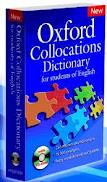This is the title of Stanley Porter’s blog post on April 24:
Why hasn’t discourse analysis caught on in New Testament studies?.
Porter has been very influential in New Testament studies for both of my M.A. thesis topics (related to inter-biblical allusions and discourse analysis, respectively). Both of these topics push the boundaries of exegetical interpretation because these research topics relate to the most complex modes of human communication. For that reason, these analyses are notorious for being used to support more or less subjective analyses of the text. They get at the heart of what is a possible interpretation and what is more probable interpretation.
Porter has started to answer his question in at least 5 different ways, which I quickly summarize here…
- D.A. compared to Old Testament studies.
- D.A. compared to other linguistically-informed exploration of the New Testament.
- D.A. is particularly difficult to get a handle on.
- D.A. does not have the same supportive structure (like commentary and monograph series and journals dedicated to the field).
- D.A. may have false expectations associated with its use (especially in relation to “objective” or “non-objective” readings.
Porter’s last paragraphs…
For whatever reason, discourse analysis has not garnered the recognition that other approaches have. However, that is not to say that it does not have much to offer. I believe that a robust and linguistically well-grounded discourse method—especially one that is grounded in functional language analysis—can potentially offer much for interpreters of the Bible—perhaps more than other, more traditional approaches. It can help the interpreter to focus upon the text as a text, and be able to speak more precisely about the features that make up such a text. It can provide a language to differentiate the various functions that parts of the language play in communication of meaning. It may be able to help to differentiate the ideas of a text from the means by which these ideas are communicated. The focus on units larger than the clause, while also realizing that clauses are made up of smaller units, brings an inherent balance to a discipline such as New Testament studies that runs the risk of being either too focused upon big ideas (often called theology) or too fixated on small units (such as an individual word).
Readers may be interested in knowing about the founding of BAGL—Biblical and Ancient Greek Linguistics—a peer-reviewed international journal dedicated to the linguistic study of ancient Greek. See www.macdiv.ca for details. The journal welcomes discourse analytical submissions as well.
This is all very good. I need to respond.

